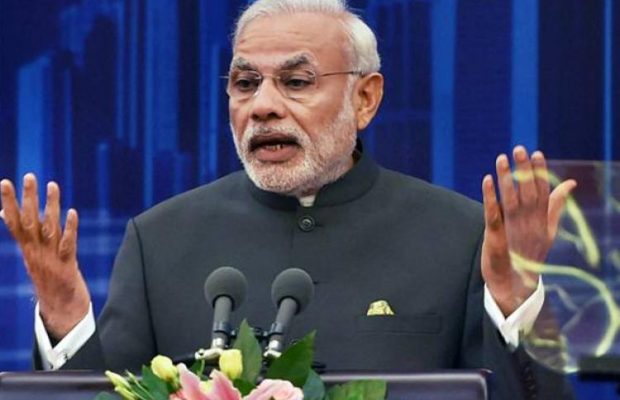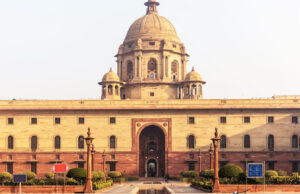MODI AT US CONGRESS – MILDEST OF ALL

Prime Minister Narendra Modi’s 48-minute speech to the joint sitting of the United States Congress with the aid of teleprompter received nine standing ovations and 68 rounds of applause. Modi’s followers saw this speech as a ”historical moment” and an affirmation of his growing stature in the international arena. Unfortunately, they are ignorant of not only the history and traditions of parliamentary practices but also the dimensions of Indo-US relations.
Five Indian Prime Ministers, who had addressed the US Congress prior to Modi without the help of any teleprompter, never attempted to portray the speeches delivered in their official capacities as personal achievements of some distinction. Any such speech or statement by the Prime Minister on foreign soil is primarily an expression of national policies viz-a-viz diplomatic relations. Modi’s over-enthused followers are unable to understand that such over the top praise for their beloved leader have converted a serious diplomatic opportunity into some kind of a tamasha.
What did Modi say in his address? He commended the members of US Congress for sending a clear message to those who preach and practice terrorism for political gains and that India will never forget the solidarity it showed when terrorists from across the border attacked Mumbai in 2008. “Although its shadow is spreading across the world, terrorism is incubated in India’s neighborhood,” Modi said. “Humanity must speak in one voice. Terrorism must be delegitimised.” Then he tried to crack a joke by saying that the US Congress well-known for its bipartisanship. “I have also witnessed a similar spirit in Indian Parliament, especially in Upper House,” Modi said sarcastically. Attempts were made to convince the US Congress of India’s strong economy and its GDP growth rate of 7.6 percent per annum.
The Prime Minister then went on to invoke former incumbent Atal Bihari Vajpayee expression of “natural allies” to describe Indo-US relations. There were also reminders that Gandhi’s non-violence had inspired the heroism of Martin Luther King, besides touching upon the genius of Norman Borlaug, who had brought the Green Revolution and food security to India.
Truth be told, there was nothing spectacular about Modi’s speech. I had recently gone through the scripts of the speeches delivered in US Congress by Jawaharlal Nehru (13 October 1949), Rajiv Gandhi (13 June 1985), P V Narsimha Rao (18 May 1994), Atal Bihari Vajpayee (14 September 2000), and Dr. Manmohan Singh (19 July 2005). I found that all of them were more categorical and firm in emphasising India’s interests before Americans while playing “a new symphony” of Indo-US relations. Modi’s speech was the mildest of them all.
Of course, Modi did not tell the US Congress about the disputed methodology used to calculate India’s GDP figures, based on which the government arrived at the 7.6 percent growth rate figure.
It was also amazing that Modi did not mention former Prime Minister Dr. Manmohan Singh in his address despite two references to the Indo-US nuclear deal. “In the fall of 2008, when the Congress passed the Indo-US civil nuclear cooperation agreement, it changed the very colors of leaves of our relationships,” he said. “Civil nuclear cooperation, as I told President Obama yesterday, is a reality.” Modi conveniently forgot that it was Manmohan Singh who risked his government in Parliament against the combined wrath of Modi’s BJP and the Left parties in July 2008, before the US Congress gave its approval to the nuclear deal in September 2008.
Modi must recall that when the BJP was the main opposition party in Parliament, it was not enamored by the pursuit of the nuclear agreement. It used every possible opportunity to derail the negotiations. The BJP often described the agreement as a “sell-out” to America. The BJP’s opposition was indeed ironical, given that former Prime Minister Atal Behari Vajpayee had laid the foundation for this agreement during his tenure. The BJP’s present excitement over the “chemistry between Obama and Modi” is understandable.
But it must remember its old objections to the nuclear deal. Modi was particularly thrilled about ending the logjam over the nuclear liability bill. He even went as far as to describe the nuclear agreement as a “centre-piece” of the improved relations between the two countries. Modi must thank those who gave him the chance to “demonstrate new trust” in the “transformed relationship” with the
US which “created new economic opportunities and expanded options for clean energy”.
Modi supporters also tried to unnecessarily hype the approval given to India for membership into the Missile Technology Control Regime (MTCR) without realising that the path for it was already paved in the preceding years. The first serious attempt to apply for membership into the MTCR was made in April 2012. India formally applied for membership on June 11, 2015. Joining MTCR and Nuclear Suppliers Group (NSG) are of course milestone achievements for India. But such achievements are the outcome of the hard lobbying done by successive governments in the past decade.
Heavily loaded with a yearning for self-praise Modi loyalists are giving credit to their miraculous leader for bringing back over 200 stolen artifacts worth over $100 million from the US. But they must also tell the nation that a law in the US makes it mandatory to return stolen or ill-gotten artifacts to the source.
I don’t know how much interest Modi himself has in taking credit for achievements that are not his own. But the problem is that his fans are always most certain about them. BJP’s Narendra Modi might want them, but not the Prime Minister of India.









You must be logged in to post a comment Login